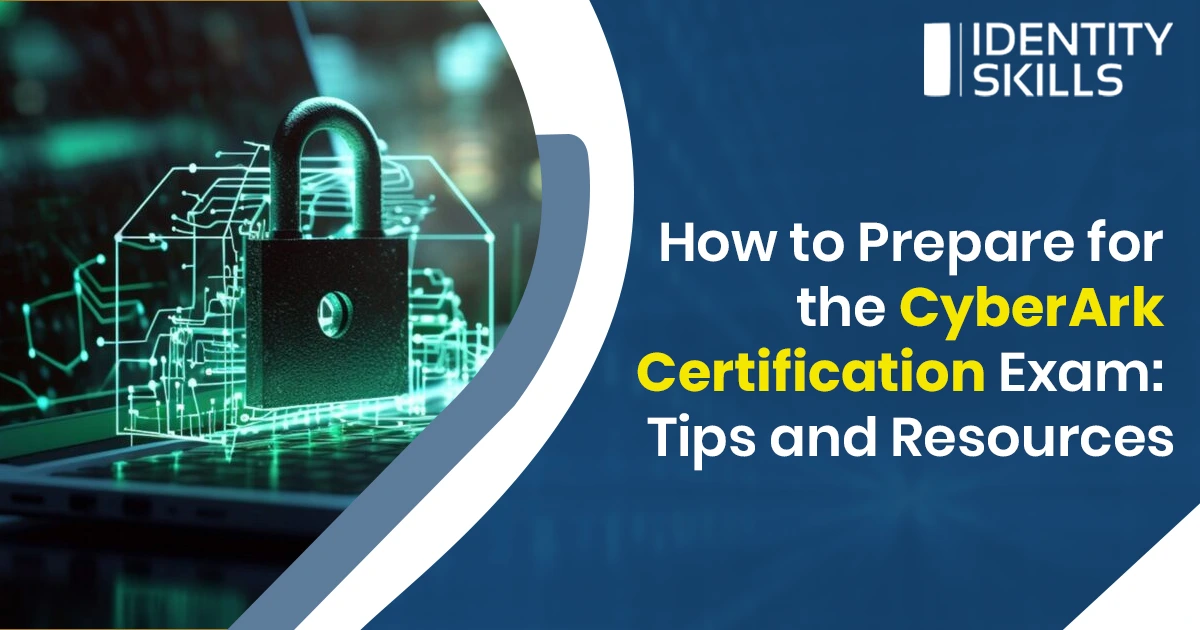As companies enhance their cybersecurity stance, Privileged Access Management (PAM) has become a focal aspect of enterprise security initiatives. CyberArk, being the world’s leading provider of PAM, provides certification that recognizes one’s expertise in managing and securing privileged accounts on its platform.
Whether you’re a security specialist, systems administrator, or IT consultant, CyberArk certification can make your career shine and stand out in an increasingly competitive job market. But how do you prepare for this advanced certification exam? In this blog, we’re going to guide you through it all—learning the exam structure to making the most of the best resources and techniques for passing.
What Is the CyberArk Certification?
CyberArk provides various certifications, the most widely held initial credential being CyberArk Defender Certification (Level 1). They also have:
- CyberArk Sentry (Level 2)
- CyberArk Guardian (Level 3)
These certifications validate your understanding of the CyberArk Privileged Access Security (PAS) Solution, its installation, configuration, policy setup, and privileged account management.
Why Is CyberArk Certification Important?
CyberArk is commonly used by organizations for privileged access security. The reasons certification matters are:
- Industry Recognition: Affirms your knowledge in PAM, a cyber security top concern.
- Career Growth: Results in jobs like CyberArk Administrator, PAM Engineer, and Security Analyst.
- High Demand: With the rise in data breaches, companies are seeking professionals with knowledge of CyberArk solutions actively.
- Better Salary: Certified individuals usually command better salaries compared to their non-certified peers.
Understanding the CyberArk Defender Exam
Format:
- Multiple-choice questions
- Typically 60–90 minutes in duration
- Proctored online exam
Topics Covered:
- CyberArk architecture and components
- Vault installation and configuration
- Password Vault Web Access (PVWA)
- PSM (Privileged Session Manager)
- CPM (Central Policy Manager)
- User onboarding and access control
- Policy creation and safe management
How to Prepare for the CyberArk Certification Exam
1. Start with the Official CyberArk Training
CyberArk offers free and paid courses on its official training portal. The most essential course is:
- CyberArk Level 1: Defender Training (available via CyberArk University)
This course includes:
- Videos and guided labs
- Hands-on exercises
- Quizzes to test your understanding
Tip: Enroll in the CyberArk Online Training from trusted e-learning platforms if you want structured guidance and instructor support.
2. Get Hands-On Experience
Theory alone won’t help you pass. Make sure you:
Set up a lab environment (on-prem or virtual machines)
- Install CyberArk Vault, PVWA, CPM, and PSM
- Practice creating safes, users, and platforms
- Simulate real-world use cases like onboarding users or session recordings
Practical skills will reinforce your understanding and help during scenario-based questions.
3. Review the Official CyberArk Exam Guide
Download and thoroughly review the Defender exam objectives from the official CyberArk certification page. Make sure you’re familiar with:
- Vault architecture
- Key services and processes
- Communication flow between components
- Basic troubleshooting techniques
4. Study with Documentation and Technical Guides
CyberArk offers extensive product documentation and how-to guides:
- CyberArk Documentation Portal
- Configuration guides, architecture whitepapers, and component details
These resources help clarify tricky topics and give insights beyond what the training covers.
5. Join Online Communities and Forums
Get involved in learning communities to share doubts and learn from others:
- CyberArk Tech Community
- Reddit (r/cybersecurity, r/sysadmin)
- LinkedIn groups and Discord servers
Asking questions and participating in discussions can clarify difficult concepts and keep you updated on recent changes.
6. Use Practice Tests
- Practice exams help you:
- Get familiar with the question pattern
- Identify weak areas
- Manage time under pressure
You can find CyberArk Defender practice tests on:
- Udemy
- Whizlabs
- ExamTopics (free community-shared questions)
Pro Tip: Don’t just memorize answers. Understand the underlying concepts.
7. Time Management & Study Plan
Create a study schedule that includes:
- Weekly goals (e.g., complete one module per week)
- Daily lab practice
- Weekly revision and mock tests
Studying 1–2 hours a day consistently over 3–4 weeks is usually sufficient for the Defender exam.
Summary: Your CyberArk Exam Preparation Checklist
✔ Enroll in CyberArk Defender Training
✔ Set up your practice environment
✔ Understand core services (Vault, PVWA, PSM, CPM)
✔ Review official documentation
✔ Take mock exams
✔ Join forums and ask questions
✔ Stick to a study plan
FAQs About CyberArk Certification
1. Is CyberArk certification hard?
It can be challenging if you’re new to PAM, but with hands-on practice and the right study materials, it’s absolutely achievable.
2. How long does it take to prepare?
Most professionals need 3–4 weeks of consistent study and lab work to prepare effectively for the CyberArk Defender exam.
3. Can I take the exam online?
Yes, CyberArk certification exams are available online with remote proctoring.
4. Do I need a background in cybersecurity?
While a cybersecurity background helps, it’s not mandatory. IT professionals with basic knowledge of servers and networks can also succeed.
5. Where can I get the best CyberArk online training?
You can explore options like CyberArk University, Udemy, LinkedIn Learning, and specialized training providers focused on PAM.
Conclusion
Preparing for the CyberArk Certification Exam requires a mix of structured training, hands-on practice, and community support. By following the steps outlined in this blog, you’ll be well on your way to passing the exam and unlocking exciting opportunities in the cybersecurity field.
No matter whether your motivation is to enhance your skill level or simply beef up your resume, CyberArk certification is an intelligent move on your IT future.

